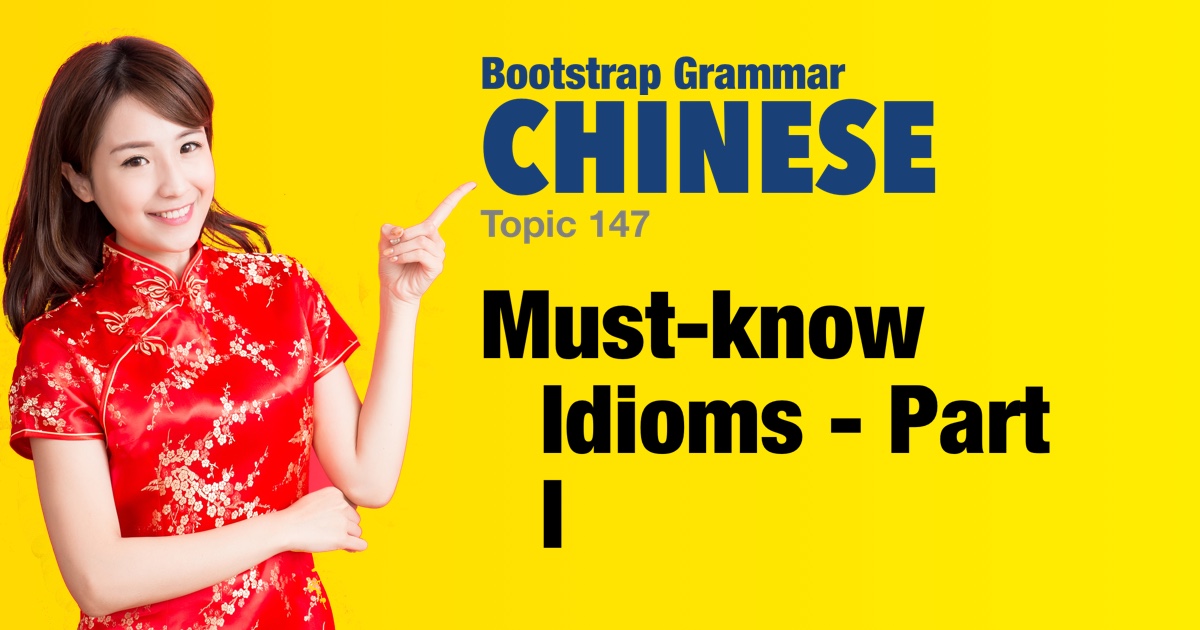Chinese grammar - Must-know Idioms - Part I |
|||
|
|||
Here is Part I of 30 must-know words/idioms that every Chinese language learner needs to know. |
| Examples: | |
|
谢谢你的帮助。
xièxie nǐ de bāngzhù. Thank you for your help.
|
|
|
对不起,我迟到了。
duìbuqǐ,#wǒ chídào le. I'm sorry, I'm late.
|
|
|
我们明天见,再见。
wǒmen míngtiān jiàn,#zàijiàn. See you tomorrow, goodbye.
|
|
|
请问,厕所在哪里?
qǐngwèn,#cèsuǒ zài nálǐ? Excuse me, where is the restroom?
|
|
|
对不起。没关系。
duìbuqǐ.#méi guānxi. I'm sorry. It doesn't matter.
|
|
|
可以帮我吗?没问题。
kéyǐ bāng wǒ ma?#méi wèntí. Can you help me? No problem.
|
|
|
你知道他在哪里吗?我不知道。
nǐ zhīdào tā zài nálǐ ma?#wǒ bù zhīdào. Do you know where he is? I don't know.
|
|
|
谢谢你的帮助。别客气。
xièxiè nǐ de bāngzhù.#bié kèqi. Thank you for your help. You're welcome.
|
|
|
欢迎光临,请坐。
huānyíng guānglín,#qǐng zuò. Welcome, please sit.
|
|
|
你好,好久不见。
nǐ hǎo,#hǎo jiǔ bú jiàn. Hello, long time no see.
|
|
|
这个多少钱?
zhè ge duōshǎo qián? How much is this?
|
|
|
你吃饱了吗?我吃饱了。
nǐ chībǎo le ma?#wǒ chībǎo le. Are you full? I'm full.
|
|
|
这个菜好吃。
zhè ge cài hǎochī. This dish is delicious.
|
|
 |
|




